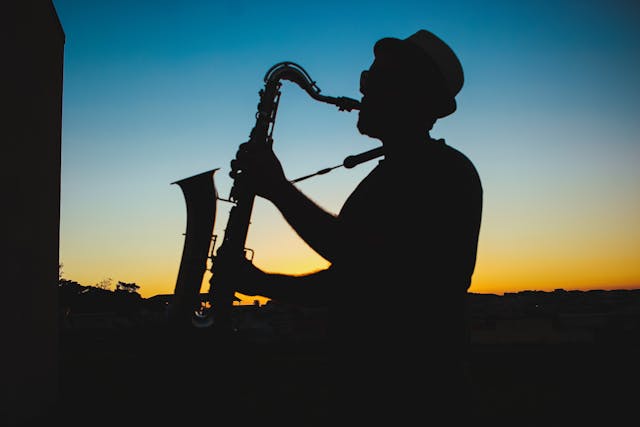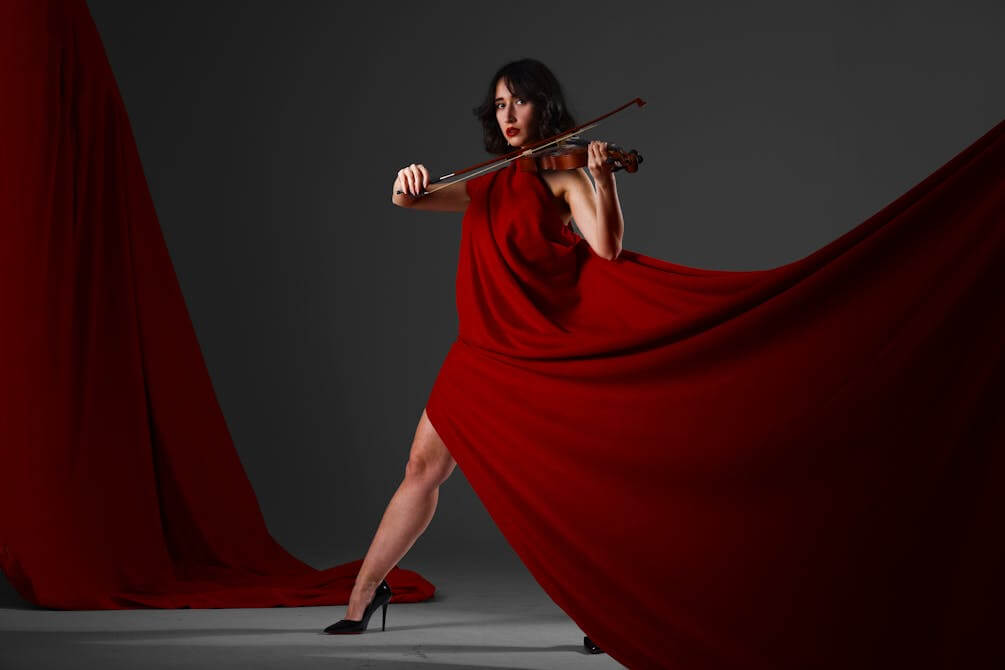Table of Contents
Music is a universal language that brings people together. Whether you are a musician, a music lover, or just learning German, understanding key terms related to musical instruments and genres can help you communicate better. This guide covers important German vocabulary related to music, including instruments and genres, with example sentences to support your learning.
German Musical Instruments & Genres – Vocabulary List
- die Akustikgitarre (the acoustic guitar)
- das Cello (the cello)
- der Dudelsack (the bagpipes)
- die E-Gitarre (the electric guitar)
- die Geige (the violin)
- der Kontrabass (the double bass)
- die Klarinette (the clarinet)
- das Klavier (the piano)
- der Flügel (the grand piano)
- die Mundharmonika (the harmonica)
- die Oboe (the oboe)
- die Orgel (the organ)
- die Popmusik (pop music)
- das Saxophon (the saxophone)
- das Schlagzeug (the drums)
- die Trompete (the trumpet)
- die Tuba (the tuba)
- die Volksmusik (folk music)

Example Sentences for Music Vocabulary
| German Word | German Sentence | English Translation |
|---|---|---|
| die Akustikgitarre | Er spielt jeden Abend auf seiner Akustikgitarre. | He plays his acoustic guitar every evening. |
| das Cello | Das Cello hat einen tiefen, warmen Klang. | The cello has a deep, warm sound. |
| der Dudelsack | Der Dudelsack ist ein traditionelles schottisches Instrument. | The bagpipes are a traditional Scottish instrument. |
| die E-Gitarre | Viele Rockmusiker spielen E-Gitarre. | Many rock musicians play electric guitar. |
| die Geige | Sie hat eine Geige zum Geburtstag bekommen. | She received a violin for her birthday. |
| der Kontrabass | Ein Kontrabass sorgt für einen starken Bass in der Band. | A double bass provides a strong bass in the band. |
| die Klarinette | Die Klarinette klingt besonders schön im Jazz. | The clarinet sounds especially nice in jazz. |
| das Klavier | Er übt täglich eine Stunde auf dem Klavier. | He practices the piano for an hour every day. |
| der Flügel | In der Konzerthalle steht ein großer Flügel. | There is a large grand piano in the concert hall. |
| die Mundharmonika | Mein Großvater spielt gerne Mundharmonika. | My grandfather enjoys playing the harmonica. |
| die Oboe | Die Oboe hat einen klaren und hohen Ton. | The oboe has a clear and high tone. |
| die Orgel | Die Kirche hat eine beeindruckende Orgel. | The church has an impressive organ. |
| die Popmusik | Popmusik wird weltweit gehört. | Pop music is listened to worldwide. |
| das Saxophon | Er spielt ein Solo auf dem Saxophon. | He plays a solo on the saxophone. |
| das Schlagzeug | Das Schlagzeug gibt den Rhythmus vor. | The drums set the rhythm. |
| die Trompete | Die Trompete ist in vielen Musikstilen zu finden. | The trumpet can be found in many music styles. |
| die Tuba | Die Tuba spielt die tiefsten Töne im Orchester. | The tuba plays the lowest notes in the orchestra. |
| die Volksmusik | Volksmusik ist in Bayern sehr beliebt. | Folk music is very popular in Bavaria. |
Conclusion
Learning musical instrument and genre vocabulary in German can improve your ability to talk about music in everyday conversations. Whether you play an instrument or just love listening to music, these words will help you express yourself better.
FAQ
What is the most popular musical instrument in Germany?
The piano and the guitar are among the most popular instruments in Germany.
How can I improve my German music vocabulary?
You can practice with our vocabulary lists or test yourself with our vocabulary quizzes.
Which music genres are popular in Germany?
Pop, rock, and classical music are widely enjoyed in Germany.

